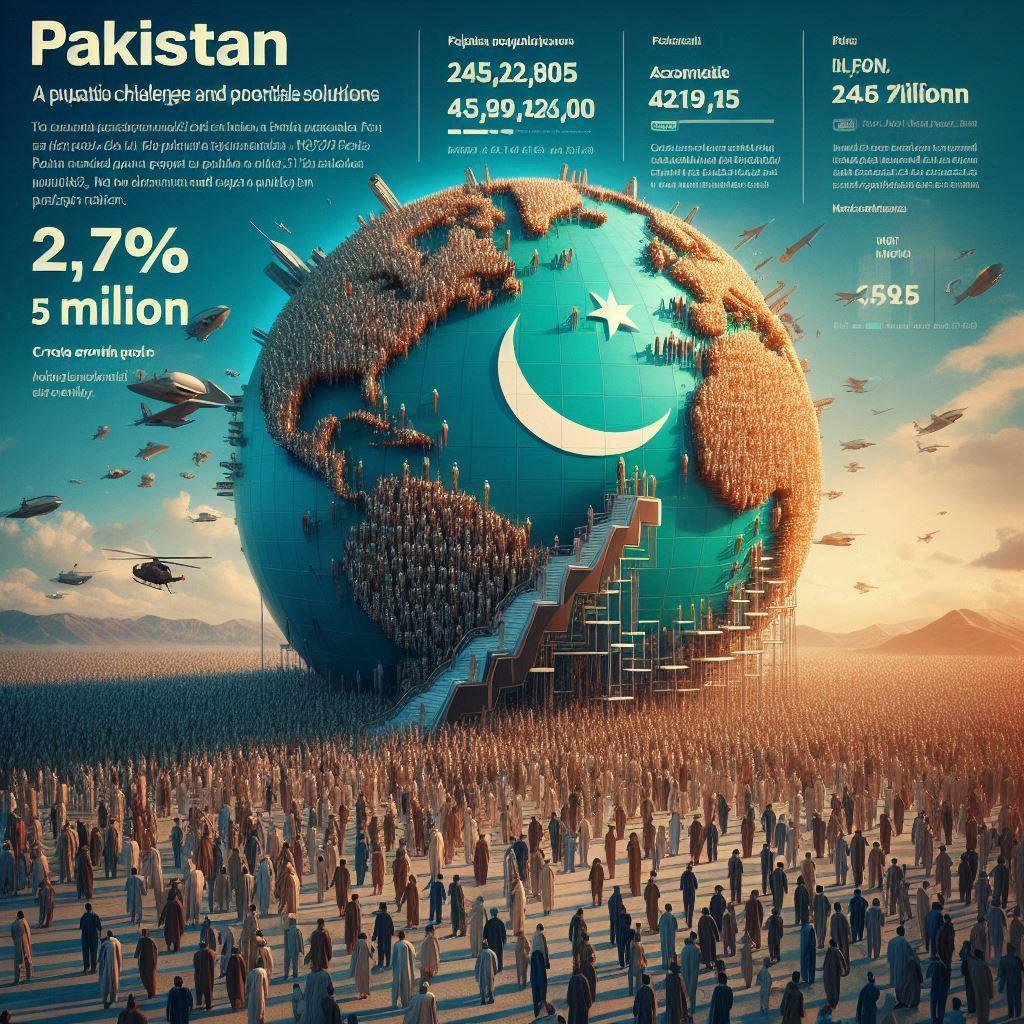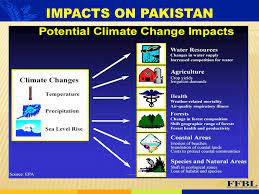Facebook is a social networking service that was created to connect people online. It was founded in 2004 by Mark Zuckerberg, Eduardo Saverin, Andrew McCollum, Dustin Moskovitz, and Chris Hughes while they were students at Harvard University.
The original idea behind Facebook was to create a social network for students at Harvard, but it quickly expanded to include other universities and eventually to the general public. Facebook allows people to create personal profiles, connect with friends, join or create groups, share photos and videos, and post updates about their lives.
In addition to connecting people, Facebook also provides businesses and organizations with a platform to connect with customers and fans. Companies can create pages and run advertisements on the platform, and people can interact with these pages by liking, commenting, and sharing posts.
Since its launch, Facebook has become one of the largest social networks in the world, with billions of active users. While it has faced challenges and controversies over the years, it remains a central part of many people’s online lives and a significant player in the technology and advertising industries. Whether Facebook is the most important social media site is subjective and depends on the individual’s perspective. However, it’s fair to say that Facebook has been one of the most influential and widely used social media platforms since its launch in 2004. It has over 2.8 billion monthly active users, making it the largest social network in terms of its user base. The platform provides a wide range of features, including newsfeeds, groups, events, and a Marketplace, that allow users to connect with friends and family, join communities, and discover and share content.
For businesses, organizations, and individuals, Facebook provides a powerful platform for reaching a large and engaged audience, building relationships, and promoting their products and services. The platform also provides a wealth of data and insights that can be used to understand and target specific audience segments.
While there are certainly challenges associated with Facebook, including privacy concerns and the spread of misinformation, the platform remains one of the most important and widely used social media sites in the world. Whether or not it is the most important social media site is a matter of perspective, but its impact and influence are undeniable.
Community Standards
Facebook has community standards that outline what types of content are allowed on the platform. Some of the key restrictions include:
- Nudity and Sexual Content: Facebook does not allow explicit sexual content, including images and videos of nudity or sexual activity.
- Violence and Graphic Content: Posts that depict graphic violence, including self-harm and suicide, are not allowed on the platform.
- Hate Speech: Facebook does not allow hate speech, which is defined as content that attacks people based on their race, ethnicity, national origin, religious affiliation, sexual orientation, gender identity, or serious disabilities or diseases.
- Harassment and Bullying: Facebook does not tolerate harassment or bullying, and will remove posts that single out individuals to cause harm.
- Spam: Facebook takes action against spam, which includes the repeated posting of the same content, misleading or incorrect information, and attempts to artificially increase the visibility of posts through tactics like engagement bait.
- False Information: Facebook has policies against the spread of false information, especially if it has the potential to harm individuals, communities, or the public interest.
- Intellectual Property: Facebook does not allow content that infringes on someone else’s intellectual property rights, including copyrighted material and trademarked logos and brands.
These are some of the main restrictions outlined in Facebook’s community standards, and the platform may take enforcement action, including removing content or disabling accounts, for violating these rules. It’s important to familiarize yourself with these standards and to make sure that your posts and activities on Facebook comply with them.
Post Reach
Several factors can impact the reach of a Facebook post, including:
- Relevance: Facebook’s algorithm prioritizes posts that are deemed relevant to users, and those that receive high engagement (likes, comments, and shares) are more likely to be shown to a wider audience.
- Frequency of posting: Posting too frequently can cause users to tune out or unfollow your page, leading to reduced reach.
- Type of content: Facebook may limit the reach of posts that contain explicit or misleading information, or those that violate community standards.
- Engagement bait: Posts that use tactics to artificially boost engagement (such as “Like this, if you agree” or “Tag a friend”) are discouraged by Facebook and can result in reduced reach.
- Pages with low engagement: Pages with low overall engagement and low audience satisfaction may see their reach decrease as a result.
- Ad preference: Some users may have ad preferences set, meaning they may not see posts from certain pages or businesses in their news feed.
It’s important to note that the exact criteria and factors used by Facebook’s algorithm to determine to reach are not publicly disclosed and can change over time. The best way to maintain a high reach on Facebook is to post high-quality, relevant content that engages your audience, and to avoid tactics that may violate community standards.
Facebook Users
Here are some interesting statistics about Facebook users:
- As of 2021, there are over 2.8 billion monthly active users on Facebook.
- The average Facebook user spends approximately 38 minutes on the platform each day.
- The largest age demographic on Facebook is 25 to 34-year-olds, making up 27% of the platform’s user base.
- There are more women on Facebook than men, with women making up 54% of the platform’s user base.
- Facebook is especially popular in India, which has the largest number of Facebook users of any country in the world, followed by the United States and Indonesia.
- The number of Facebook users who access the platform exclusively through their mobile devices has increased dramatically in recent years and now accounts for more than 90% of Facebook’s daily active users.
- Facebook is used by people of all income levels but is particularly popular among those with higher incomes and higher levels of education.
- The most popular type of content shared on Facebook is photos, followed by videos and links.
- Facebook has a significant impact on political discourse and has been used by politicians, political organizations, and advocacy groups to reach and mobilize voters.
- The Facebook community is incredibly diverse, with users from all over the world, representing a wide range of cultures, religions, and languages.
These statistics demonstrate the massive scale and impact of Facebook and show that it continues to be a central part of many people’s online lives.
Interesting Facts About Facebook
Here are some interesting facts about Facebook:
- Facebook was launched on February 4, 2004.
- As of 2021, Facebook has over 2.8 billion monthly active users.
- Facebook was originally called “TheFacebook” when it was first launched at Harvard University.
- Facebook’s mission statement is to “give people the power to build community and bring the world closer together.”
- Facebook is headquartered in Menlo Park, California and has offices in multiple countries.
- Facebook allows users to share text, photos, videos, links, and more with their friends and followers.
- Facebook has been involved in several high-profile privacy scandals, including the Cambridge Analytica data scandal.
- Facebook acquired Instagram in 2012 for $1 billion.
- Facebook’s IPO in 2012 was one of the largest technology IPOs in history.
- Facebook has faced criticism and controversy over issues related to hate speech, misinformation, and political polarization.
- Facebook supports more than 100 languages, making it accessible to a large and diverse global audience. The platform allows users to select their preferred language from a list of supported languages and change it at any time. Some of the most popular languages on Facebook include English, Spanish, Arabic, Indonesian, French, and Portuguese. Having a large number of supported languages is an important part of Facebook’s mission to create an inclusive and accessible platform for everyone. By providing language support for a wide range of languages, Facebook helps to break down language barriers and enables people from all over the world to connect and communicate with one another.
These are some interesting facts about Facebook, and it continues to evolve and impact the world in new and significant ways.
The Benefits
There are many benefits to using Facebook, including:
- Connecting with friends and family: Facebook makes it easy to keep in touch with people you care about, even if they live far away. You can share updates, photos, and videos, and see what your friends are up to.
- Joining communities: Facebook is home to millions of communities, where people with similar interests can connect, share information, and collaborate. This can be especially helpful for people who live in isolated areas or who have niche interests.
- Staying informed: Facebook can be a valuable source of news and information, as well as a way to stay up-to-date with current events. Many news organizations and journalists use Facebook to reach their audience and share their work.
- Networking and career opportunities: Facebook can be a valuable tool for professionals who are looking to network and find new career opportunities. You can connect with other professionals in your field, join groups related to your work, and follow companies and organizations that interest you.
- Promoting your work and interests: Facebook is a great platform for showcasing your work, whether you’re a musician, artist, writer, or any other type of creative. You can share your work with a large audience and connect with others who share your interests.
- Business and marketing: Facebook is also a valuable platform for businesses and organizations, providing a way to connect with customers and promote their products or services. Facebook’s advertising platform is highly targeted, making it a cost-effective way to reach potential customers.
These are just a few of the benefits of using Facebook, and there are many more. If used responsibly and with a clear understanding of the risks and limitations, Facebook can be a valuable tool for staying connected and engaged with the world.
The Harmful Impacts
There have been several harmful impacts of Facebook observed over the years, including:
- Privacy concerns: Facebook has faced criticism over its privacy policies and the way it collects and uses user data. Some people are concerned that Facebook collects too much personal information, and that this information is not always kept secure.
- Addiction: Spending too much time on Facebook can be addictive, leading people to neglect other important aspects of their lives, such as work, school, and relationships.
- Spread of misinformation: Facebook has been criticized for allowing the spread of false or misleading information, including conspiracy theories, fake news, and propaganda. This can lead to confusion and harm, especially when people make important decisions based on inaccurate information.
- Mental health: Spending too much time on Facebook can hurt mental health, leading to feelings of anxiety, depression, and social comparison. Research has shown that excessive use of social media can also contribute to sleep problems and low self-esteem.
- Cyberbullying: Facebook can also be a platform for cyberbullying, with users using the site to harass, intimidate, and threaten others. This can be especially harmful to vulnerable groups, such as children and young people.
- Political polarization: Facebook has been criticized for contributing to political polarization, with users only being exposed to information and perspectives that align with their own beliefs. This can lead to a reinforcement of existing biases and the marginalization of minority perspectives.
- Seeing friends on Facebook appear to lead a luxurious life can sometimes lead to feelings of inferiority and can trigger social comparison. Research has shown that spending too much time on social media can increase feelings of depression, anxiety, and low self-esteem, as well as contribute to body image concerns and negative comparisons with others.
- It’s important to remember that what people choose to share on social media is often a carefully curated and filtered version of their lives, and may not reflect the reality of their experiences. It’s also important to focus on your own life, goals, and accomplishments, rather than comparing yourself to others. If you find that social media is affecting your mental health and well-being, it may be helpful to limit your time on the site or to take a break from it altogether.
These are just a few examples of the harmful impacts of Facebook, and there are many more. It’s important to be aware of these risks and to use the platform responsibly, take steps to protect your privacy, limit your time on the site, and be mindful of the information you share and consume.
The Future
The future of Facebook is a subject of much speculation and discussion. That being said, here are some of the factors that are likely to shape the future of Facebook:
- Artificial Intelligence and Virtual Reality: Facebook has invested heavily in AI and VR technology, and it is expected that these areas will play a significant role in the platform’s future.
- Privacy and Data Security: In light of recent privacy scandals, Facebook has made efforts to improve its privacy policies and to better protect user data. Expectations for privacy and data security are likely to continue to grow, and Facebook will need to continue to evolve its policies and technology to meet these expectations.
- Competition: Facebook faces growing competition from other social media platforms, as well as from emerging technologies such as augmented reality and gaming. The platform will need to continue to innovate and differentiate itself to remain relevant and competitive.
- Regulatory Environment: Facebook operates in a highly regulated industry, and regulatory changes and enforcement actions can have a significant impact on the platform. In the future, Facebook will likely continue to face increased regulatory scrutiny and the need to comply with new rules and standards.
- Advertiser Demands: Facebook’s business model is built on advertising, and the demands and expectations of advertisers are likely to shape the platform’s future. Advertisers are likely to continue to demand greater transparency, accountability, and return on investment from their advertising spend on Facebook.
These are some of the key factors that are likely to shape the future of Facebook, and the platform will need to navigate these and other challenges to continue to grow and evolve. Facebook has the potential to play a significant role in the future of business, particularly in the areas of advertising, marketing, and e-commerce.
- Advertising: Facebook’s advertising platform is highly targeted, making it a cost-effective way for businesses to reach potential customers. Facebook’s vast user base, combined with its ability to target specific demographics and interests, makes it a valuable tool for businesses looking to reach their target audience.
- Marketing: Facebook provides a platform for businesses to connect with customers, promote their products and services, and build brand awareness. Facebook’s social media features, such as Groups and Pages, make it possible for businesses to create and engage with a community of followers.
- E-commerce: Facebook has been expanding its e-commerce capabilities in recent years, making it easier for businesses to sell products directly to customers through the platform. This includes features such as Facebook Shops, which allows businesses to create an online store within Facebook, and the ability to make purchases directly within the Facebook app.
However, it’s important to keep in mind that Facebook is just one aspect of a broader digital landscape and that businesses will need to consider a variety of platforms, tools, and strategies to reach their target audience and succeed in the digital age. The future of business will likely be shaped by a combination of new technologies and evolving consumer behaviour and businesses that can adapt to these changes will be best positioned for success.
The competitors of Facebook
YouTube can be considered a competitor to Facebook in certain areas, particularly when it comes to video content. YouTube is a video-sharing platform that allows users to upload, share, and view videos. It has a large user base and a diverse community of creators and viewers, making it a powerful platform for content creators, businesses, and advertisers.
YouTube provides a platform for businesses and individuals to reach a large audience, create engaging content, and build a following. It offers features such as YouTube Ads, which allows businesses to advertise to a highly targeted audience, and YouTube Studio, which provides creators with tools for managing their content and tracking their performance.
However, it’s important to note that YouTube and Facebook are different platforms with different audiences, features, and cultures. While YouTube is primarily focused on video content, Facebook is a more general-purpose social media platform that provides a wider range of features, including newsfeeds, groups, and events. Businesses and individuals will need to consider their goals and target audience when choosing which platform(s) to use.
Facebook has several other competitors in the social media space, including:
- Twitter: Twitter is a microblogging platform that allows users to post short, real-time updates about their thoughts, activities, and interests.
- Instagram: Instagram is a visual social media platform that is focused on sharing photos and videos. Instagram is particularly popular among younger users and is known for its highly curated, visually appealing content.
- Snapchat: Snapchat is a multimedia messaging app that is known for its disappearing messages and fun filters. Snapchat is popular among younger users and is often seen as a more lighthearted alternative to Facebook.
- LinkedIn: LinkedIn is a business-focused social media platform that is designed to help professionals connect, network, and find job opportunities. LinkedIn is particularly popular among job seekers and recruiters.
- TikTok: TikTok is a video-based social media platform that is known for its short-form, user-generated content. TikTok is particularly popular among younger users and has become a major player in the social media space in recent years.
Each of these platforms has its unique features, audience, and culture, and businesses and individuals need to consider their goals and target audience when choosing which platform(s) to use.
FaceBook Restrict the Sharing of Other Websites
Facebook has policies in place that restrict the sharing of links to other social media sites and blogs, but these policies are not meant to completely discourage such links. Rather, they are intended to prevent the spread of spam and misinformation on the platform.
For example, Facebook may limit the reach of posts that contain a large number of links or posts that are deemed to be spam. This is because these types of posts can often be used to spread malicious or false information or to promote products or services excessively or annoyingly.
That being said, Facebook allows links to other social media sites and blogs as long as they are not spammy or misleading. Users are also free to share links to their own blogs or social media profiles.
It’s important to keep in mind that Facebook’s policies are continually evolving, and the platform may change the way it handles links to other sites and blogs. The best way to ensure that your posts are not restricted or penalized is to follow Facebook’s community standards and to use the platform responsibly and respectfully.
Conclusion
In conclusion, Facebook is a highly popular and influential social media platform that has the potential to play a significant role in many areas of our lives, including business, communication, and entertainment. However, it’s important to be mindful of the potential risks associated with Facebook, including privacy concerns, addiction, misinformation, cyberbullying, and the impact on mental health.
To get the most out of Facebook, it’s important to use the platform responsibly, take steps to protect your privacy, limit your time on the site, and be mindful of the information you share and consume. By being aware of the potential benefits and risks associated with Facebook, you can make informed decisions about how you use the platform, and how you engage with others online.
Facebook is widely used in Pakistan, with a significant portion of the country’s internet-using population being active on the platform. According to various estimates, there are tens of millions of Facebook users in Pakistan, making it one of the largest user bases in the region. Facebook has become an important tool for social and political communication, as well as a platform for businesses, organizations, and individuals to reach a large audience and build relationships. The platform has also been used to organize events, promote causes, and share news and information. However, like any platform, Facebook also has its challenges in Pakistan, including privacy concerns, misinformation, and the spread of hate speech and extremism. Despite these challenges, Facebook remains a popular and influential platform in the country, and its usage is likely to continue to grow in the future.
Should Pakistan build its social media platform?
It’s worth noting that while these platforms are popular in Pakistan, Facebook remains the dominant social media platform in the country, with a large and active user base. Whether local platforms will be able to compete with Facebook remains to be seen, but they do offer an interesting alternative for users looking for a more locally-focused social media experience. Whether Pakistan should build its social media site like Facebook is a matter of debate and depends on several factors. Here are some arguments for and against the idea:
Arguments in favour:
- Localization: Building a local social media site would allow for a more personalized and localized experience for users in Pakistan. It could better cater to the cultural and language differences of the local market, providing a more relevant and appealing platform.
- Data privacy: With increasing concerns about privacy and data security, having a local social media site could offer users in Pakistan more control over their personal information and data.
- Economic benefits: Building a successful social media platform could have significant economic benefits for Pakistan, including job creation and an increase in the technology sector.
Arguments against:
- Competition: Building a new social media site would mean competing against established international platforms like Facebook, which has a large and established user base. This could be a difficult challenge for a new and untested platform.
- Investment: Building a social media platform requires significant investment, including in technology, marketing, and talent. It may be difficult for Pakistan to secure the necessary funding to build and scale a new platform.
- User adoption: Convincing users to switch from established platforms like Facebook to a new and untested local platform could be a challenge. It may take time to build a large and active user base, and there are no guarantees of success.
Ultimately, the decision of whether or not to build a local social media site in Pakistan is complex and depends on a range of factors. While there may be benefits to having a local platform, there are also significant challenges that would need to be overcome for such a platform to be successful.











One Comment